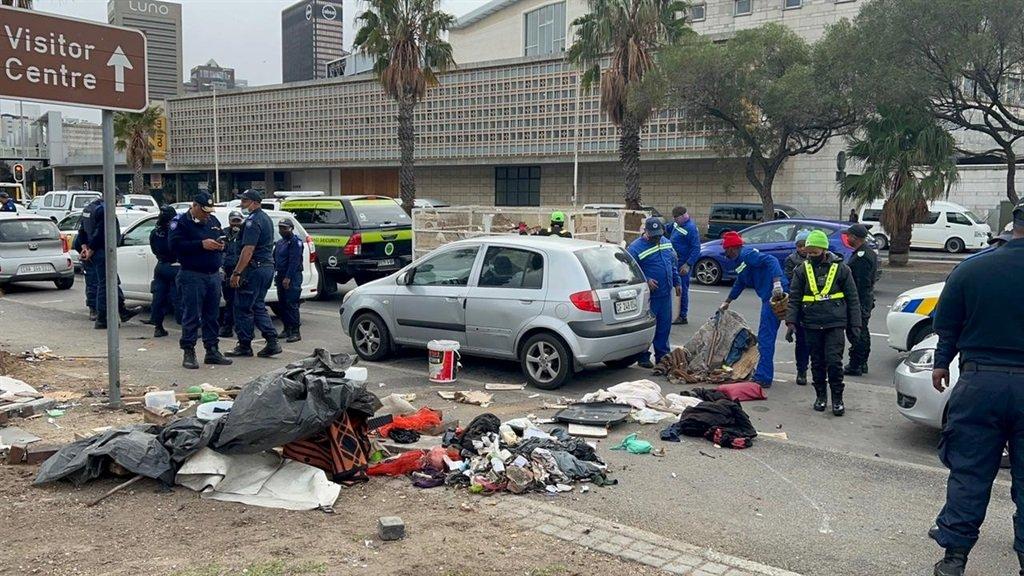Africa-Press – South-Africa. Another legal showdown between the City of Cape Town and a group of concerned residents could soon be playing out in court.
It comes after 11 people, represented by lobby group Ndifuna Ukwazi, filed a notice of motion in the Equality Court sitting in the Western Cape High Court to challenge the City’s amendments to the Street, Public Places, and the Prevention of Noise Nuisances by-law in February this year.
According to the amended notice of motion filed last week, the group argues that the by-law violates the Constitution and is unconstitutional and invalid.
Cape Town mayor alarmed by ‘upsurge in homelessness’
The group also argues that the City’s Integrated Waste Management by-law is unconstitutional and invalid, to the extent that the provisions in the by-law empower the City to deprive and confiscate the personal belongings of street people. The court challenge comes after the City’s law enforcement officials conducted a clean-up operation in various parts of Cape Town, where homeless people reside, including the Castle of Good Hope and Culemborg.
Ndifuna Ukwazi said these are “cleaned out” operations.
Following the operation, the court ordered the City to return the belongings of the homeless living around the Castle in the CBD.
In a founding affidavit, Carin Gelderbloem, who resides in Observatory, said the City had authorised and mandated law enforcement officials to execute numerous operations to physically displace and dispossess street people of a home and personal belongings in respect of various places around the city.
Gelderbloem said:
Gelderbloem added that street-based people were entitled to freedom of movement. “We have the right to move freely, without having to explain ourselves to anyone, particularly those in authority, and without the fear that we may be subjected to arbitrary questioning or arrests,” Gelderbloem said.
Shaun Shelly, a senior researcher at the department of family medicine at the University of Pretoria, said in his supporting affidavit that the applicants had asked him to provide information about drug prohibition and the City’s approach to dealing with street-based people who use drugs.
“In my opinion, the City’s approach to dealing with street people who use drugs is inappropriate and does not reflect an appreciation for the historical context and the complexity of the drug problem. Many people living on the street use drugs to relieve the emotional and physical pain in a hostile setting,” he said.
ALSO READ |
City of Cape Town to return belongings to homeless after agreement in court
In response to the court challenge, the City said the amended by-law on Streets, Public Places, and the Prevention of Noise Nuisances requires that alternative accommodation be offered.
“This ensures that sleeping and camping overnight in public places is no longer classified as an automatic offence if no other choice is available to a person.
It said:
The City said the streets by-law does not circumvent the need for a court order, where a structure is considered a dwelling under the Prevention of Illegal Eviction and Unauthorised Occupation of Land Act.
“In these instances, the City will acquire the necessary court order, and ensure alternative accommodation at shelters or safe spaces, where this is just and equitable,” it said.
For More News And Analysis About South-Africa Follow Africa-Press






